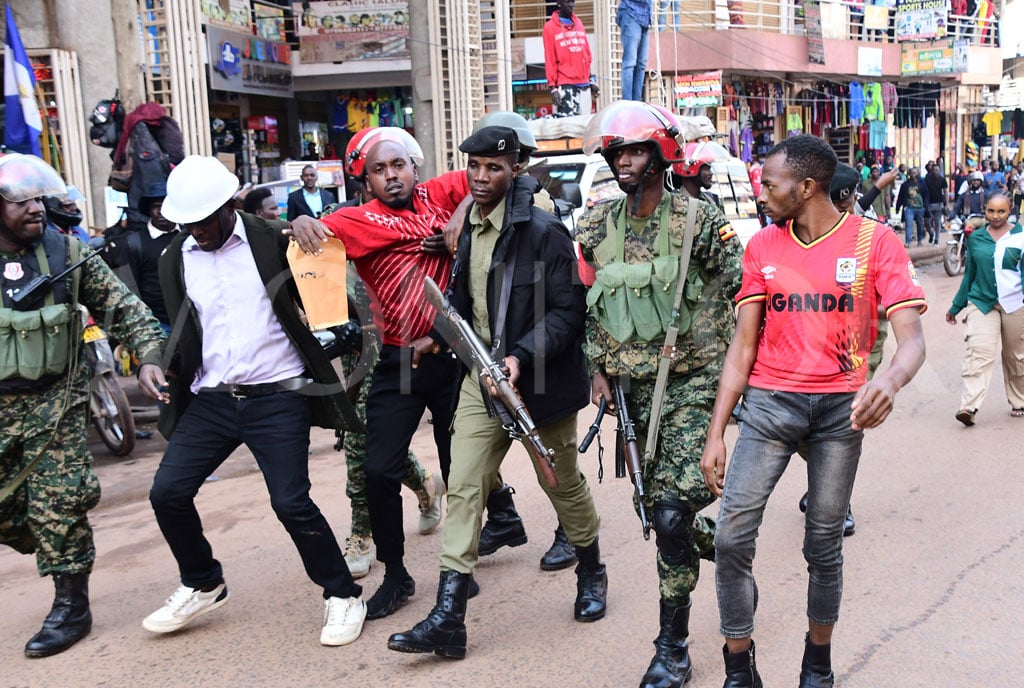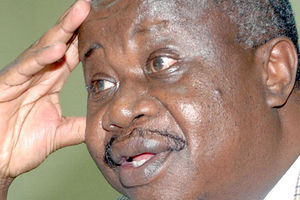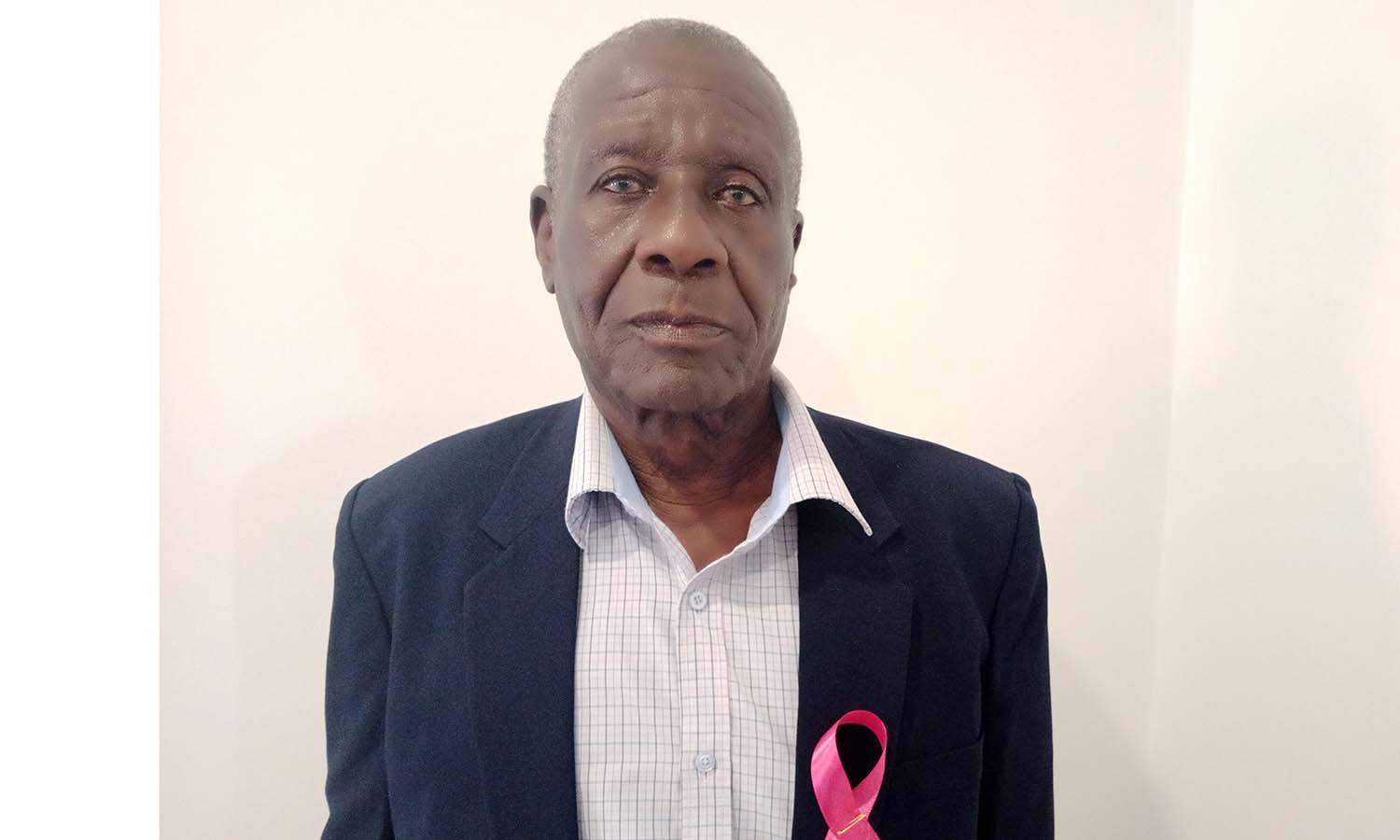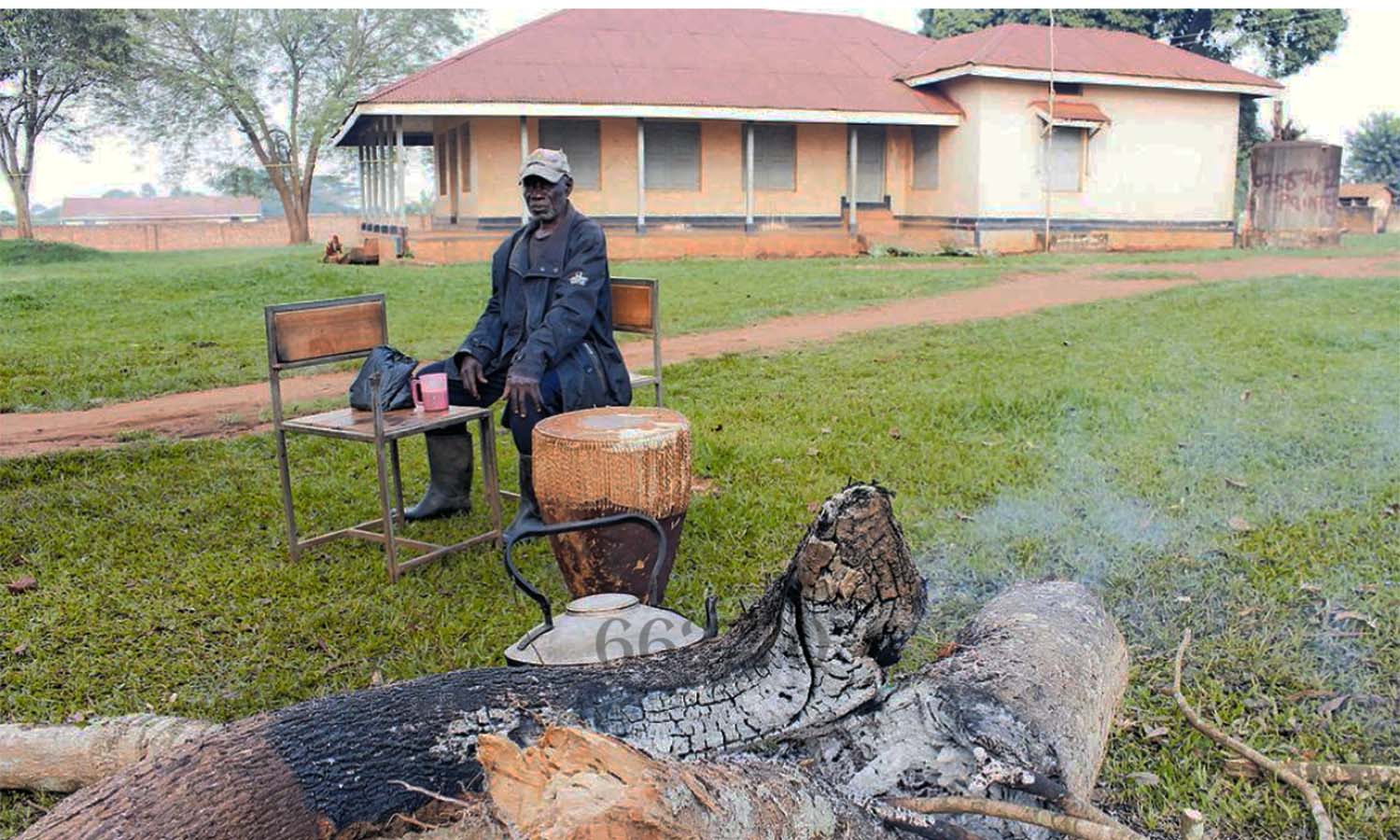
Police officers arrest demonstrators during the March to Parliament protest in July 2024. PHOTO/ REUTERS
A series of recent events have cast the country in an unfavourable light, with many citizens struggling to survive amid biting economic hardships.
Only three weeks ago, officials from the Kampala Capital City Authority (KCCA) locked up several shops in Kikaya, Kawempe Division, on the outskirts of the city, over unpaid property tax and other taxes, leaving the business people stranded.
For Ms Christine Atuhaire, she was hard hit when thugs robbed her of more than Shs2 million in downtown Kampala where she had gone shopping for merchandise.
“I am stressed and I don’t know where to turn. Just when I thought I could make some little money from my shop, they closed it because my landlord had not paid property tax,” Ms Atuhaire said.
Ms Norah Kobusingye, 25, a salon owner, who also joined the March to Parliament, said she has been battling with both the Uganda Revenue Authority (URA) and garbage collectors who have continued to demand for money, which she does not have.
“I am frustrated over the high taxes in this country. As soon as I opened a salon business at the start of this year, URA officials were at my doorstep. I asked to be given more time since the business had not made any profits yet,” she said.
“Before long, the garbage collectors followed suit. I pleaded with them, but my appeals fell on deaf ears as they took my details and reported me for failing to pay the garbage dues. I almost broke down when we were also asked to pay electricity bills,” she added.
Ms Kobusingye further explained that she was angered by the stories of corruption.
“What pushed me to the edge were the stories of how the leadership of Parliament was reportedly misusing money. I was angry. Here you are struggling to stay afloat in business and yet hearing all kinds of stories of leaders misusing taxpayers’ money,” she said.
“And when the different exhibitions came on social media spaces, the revelations hit me hard. It is for this reason that I joined the July 23 March to Parliament. I was annoyed,” she added.
On July 23 and 25, a section of youth attempted to march to Parliament to protest alleged corruption and excessive spending by the House. But they were quickly neutralised by the police, armed plain-clothed security personnel, and Military Police. More than 100 of the youth were arrested, charged in court, and sent to prison. The majority is currently out on bail.
The youth demos followed intense scrutiny of the House, including an exhibition under the hashtag #UgandaParliamentExhibition the micro-blogging site X, formerly Twitter, amid criticism over its alleged corruption and excessive spending.
The drive was led by citizens, among them journalist cum lawyer and social justice activist Agather Atuhaire, and university don and satirist Jimmy Spire Ssentongo.
But Speaker Anita Among has dismissed the claims as a political witch-hunt by self-seeking local and foreign interests.
These recent events have cast the country in bad light, with many struggling to survive amid biting economic hardships while the ruling class are steeped in corruption and opulence.
A 2022 Bank of Uganda Financial Capability Survey report shows that of the 22.8 million working Ugandans, only 1 percent earn more than Shs1 million ($257) a month while nearly 50 percent of the 22.8 million earn less than Shs150,000 ($39) a month.
The country has in the last few months witnessed several protests from the one of March to Parliament to newly trained doctors protesting against the Health ministry’s failure to deploy them for training. Similarly, casual workers of KCCA protested delayed payment, while traders closed shops, protesting a cancelled meeting with President Museveni to address their grievances.
A June 14 press release by Mental Health Uganda, a non-governmental organisation, said Ugandans are grappling with high levels of poverty, alcoholism and drug abuse, lost incomes and high interest rates on loans, creating insecurity such as the recent violent crimes in Kampala.
The report, citing the National Labour Force Survey Report, 2021, by the Uganda Bureau of Statistics, shows that youth unemployment in the country stands at 41 percent, with 9.3 million of the youth having no access to education, employment, or training.
“All these expose communities to serious mental health problems, including suicide. More recently, the cases of suicide have increased with about eight reported in various forms of media in recent weeks. The most affected age group is 20 to 45 years, with males being three times more likely to die by suicide than females, even if females ideate suicide more,” the release said.
The release recommended that formal institutions, including workplaces, institutions of learning, and places of worship, should promptly integrate mental healthcare and services, including providing reasonable accommodation to employees.
Dr Fred Muhumuza, an economist with more than 20 years of experience in research, practice and review of development policies in public, private and civil society environments, said the protests are a clear sign that all is not well in the country.
“When people are protesting or complaining, it is definitely a sign of not being happy...each person has their aspirations that they thought the economy would help them fulfill and they have not seen that happen,” he said.
Dr Muhumuza said it is an economic problem that has become a social problem for the ruling class to worry about.
“The Gen Zs who are protesting are unhappy about the systems. The unhappiness is coming from the failure of the economy to give people the opportunities and the feeling that those supposed to address the problem are not,” he said.
Dr Muhumuza asked the planners of the country to get back to the drawing board to reorganise, instead of militarily confronting the unhappy lot.
“We need to go back and revisit policies, especially at the high level, revisit the entire economic frameworks, institutional frameworks being made by the government, which should reduce its size and behaviour, and target growing this economy,” he said.
He also said salaries for government workers and the private sector have to be enhanced to meet their growing demands, which is stressing the working class.
“How do you pay a KCCA worker Shs150,000 a month and expect a lot from them? Failing to deploy medical interns, who are waiting to work, but need to attain that one-year training? We cannot keep passing the blame; some of our policies are not right,” he added.
“[Some of the] institutions and corruption are costing our economy. There is no money left to grow the economy. There must be some people who take the responsibility, including Cabinet, Members of Parliament, and Permanent Secretaries [to resolve issues],” Dr Muhumuza added.
Prof Ogenga Latigo, 71, the former Leader of the Opposition in Parliament, said the unrest and discontent in Uganda is not unique given what happened in Kenya in July where the youth took to the streets to protest against high taxes.
“These are all things that have happened due to lack of responses from concerned authorities. After Covid-19 hit the country in 2020, the government did not properly prepare for the consequences of that shut-down,” he said.
He said after the shutdown, the people believed that many things, including the economy, would improve but instead, food prices are high.
“We’re a country that is deeply discontented with the status quo and that is why the youth are protesting, the traders are locking shops instead of listening to the President because they do not see hope. Unless our leaders get to quickly understand this, avoid belligerence and try to talk to people admitting that there are things that should have been done but have not been,” he said.
Prof Latigo asked the government to borrow a leaf from the 1960s when corruption was virtually unheard of and jobs were given on merit, not based on nepotism, which is rampant today.
Mr Xavier Ejoyi, the executive director of ActionAid International Uganda, said Ugandans are feeling short-changed by their leaders who are instead prioritising private gains.
“The feelings I see among Ugandans are two-fold. On the one hand, there are feelings of frustration that things are not working out, and public services are getting poorer, from health to education. They see that the country is not working for ordinary Ugandans,” he said.
“On the other, we are seeing ordinary citizens, young people, organising themselves to stand up against injustice. I see this as a great move, because it is the best approach to addressing the ongoing issues. In the past, politicians stood up for the common man but of late, leaders’ integrity is in the spotlight,” he added.
Mr Matia Kasaija, the minister of Finance, yesterday called for calm, saying the government is working hard to improve the situation. He said as the minister responsible for planning, he spends sleepless nights to ensure that Ugandans have something to take home.
Stakeholders speak
Fred Muhumuza, economist: “We need to go back and revisit policies, especially at the high level, revisit the entire economic frameworks, institutional frameworks being made by the government, which should reduce its size and behaviour, and target growing this economy.”
Prof Ogenga Latigo, former Leader of the Opposition in Parliament: ...We’re a country that is deeply discontented with the status quo and that is why the youth are protesting, the traders are locking shops instead of listening to the President because they do not see hope .
Xavier Ejoyi, the executive director of ActionAid International Uganda: In the past, politicians stood up for the common man but of late, leaders’ integrity is in the spotlight. The public officers are not addressing people’s needs.”
Matia Kasaija, minister of Finance: We don’t want anybody to sleep on an empty stomach, we don’t want to see anybody failing to send their children to school because there is no money. So let them remain calm, we are working day and night; the situation will get better.








